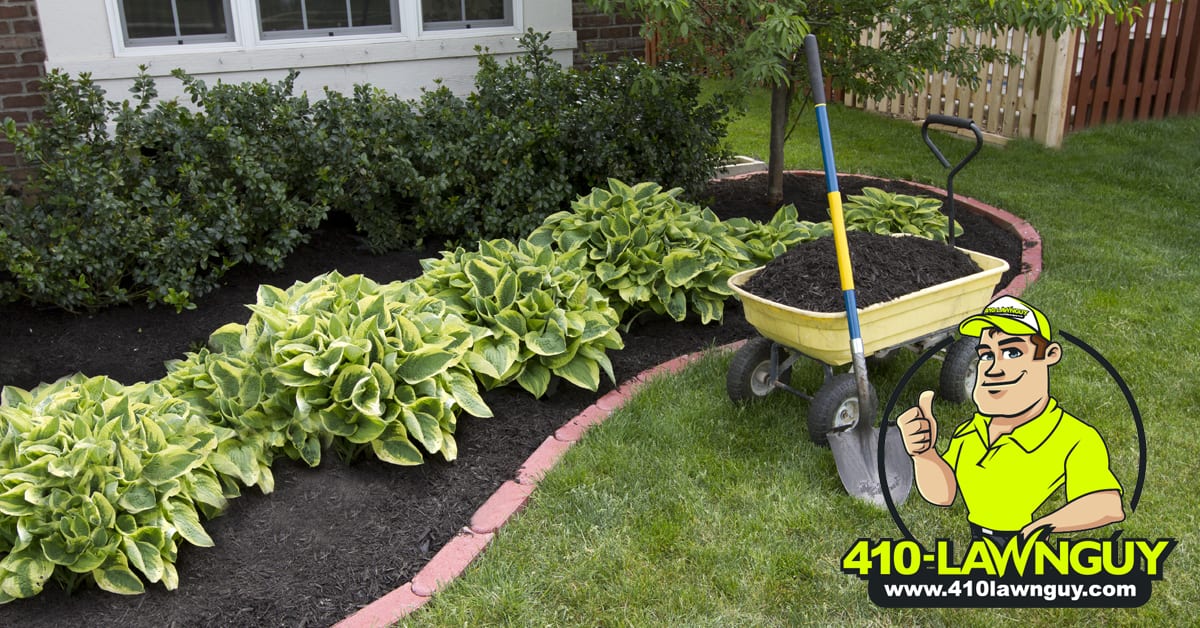 Using mulch is part and parcel of gardening as it supports some natural processes in your garden. If you carry out mulching correctly, your garden will reap several benefits while cutting down on watering, weeding, and pest control expenses. Notably, you can incorporate it into any gardening system. So, what are the benefits of mulching to your garden?
Using mulch is part and parcel of gardening as it supports some natural processes in your garden. If you carry out mulching correctly, your garden will reap several benefits while cutting down on watering, weeding, and pest control expenses. Notably, you can incorporate it into any gardening system. So, what are the benefits of mulching to your garden?
The Benefits Of Mulching Your Flower Beds and Trees
To get the full benefits of mulching, ensure the layer is at least 5 -7.5 inches. The mulch offers the following benefits to your flower beds and trees.
Helps With Weed Problems
A good layer inhibits the growth of weeds in the soil. It is the solution for a weed-free garden. A weed-free garden ensures the flower bed and trees have all the nutrients without competition.
Retains Moisture and Nutrients
AThe same layer helps with water and nutrient retention. Furthermore, if you opt for organic material, it will release the nutrients into the soil on decomposition. Moreover, it will help the plants survive hot weather like during the summer.
Soil Temperature Regulation
Mulch ensures plants remain in stable condition without being stressed in conditions of fluctuating temperatures. This is beneficial, especially during the summer and spring seasons.
Biodiversity
Biodiversity in your flower bed or garden is a necessary condition for the healthy growth of plants. Organic material can offer a home to several insects and bugs like earthworms. Such bugs improve the soil structure. At the same time, you don’t want to use material that harbors destructive creatures.
Basics of Mulching
Before you begin this project, there are some essential factors to look out for. First, always make sure to weed your garden. Additionally, the mulch layer should be sufficient to discourage the growth of weed.
To keep weeds at bay, a four-inch layer is enough to deter growth. You can try addng additional inches to avoid rapid weed growth in some cases, especially if the flowerbed has weed seeds.
As mentioned, it can help conserve moisture in your flowerbed. However, the humidity might lead to the rotting of the flower’s stem and roots if not done well. Always ensure the your layer is at least one inch from the stem. If you place wet mulch on top of the stems, the chances of rotting are very high.
When Should You Mulch and How Much?
The appropriate moment varies based on several factors, like the type of plant material you are using. Also, the weather conditions determine the best time to start the project. Gardening experts recommend that you mulch between mid-to-late spring. When the soil is warming after experiencing freezing temperatures from the winter, and mulching immediately after winter is not advisable, it slows the warming process that is highly needed. Furthermore, mulching late in the fall insulates the ground while barring plant dormancy.
When mulching, the idea is not to overdo it, especially in the case of flowerbeds. When the layer is too thick, it might cause a problem for seedlings trying to access it. When the mulch goes lower than two inches, you need to top it up with another inch.
Types Of Mulch To Use
There are typically two types of mulch you can use in your flowerbed or trees. The mulch will depend on the material available. Mulch typically falls into one of two categories… organic and inorganic. Organic refers to formerly living materials like leaves, grass, wood chippings, and paper. Organic mulch is advantageous because once it rots, the garden gets a supply of nutrients. Elsewhere, inorganic mulch includes materials like plastics.
Does Mulch Work Everywhere?
Although mulch comes with several benefits, it does not work everywhere. For instance, when you use organic mulch in damp, low areas that can retain moisture, it encourages the overpopulation of slugs that can harm plants. On the other hand, rock mulches can get extremely hot, especially during the summer. The heat can kill shallow roots leading to the eventual drying up of flowers. It is recommendable to reach out to an expert, such as 410 Lawn Guy, for advice on the correct type of mulch to use.

